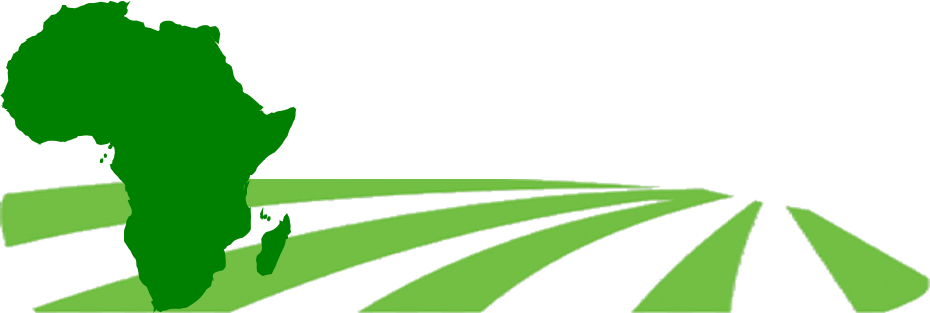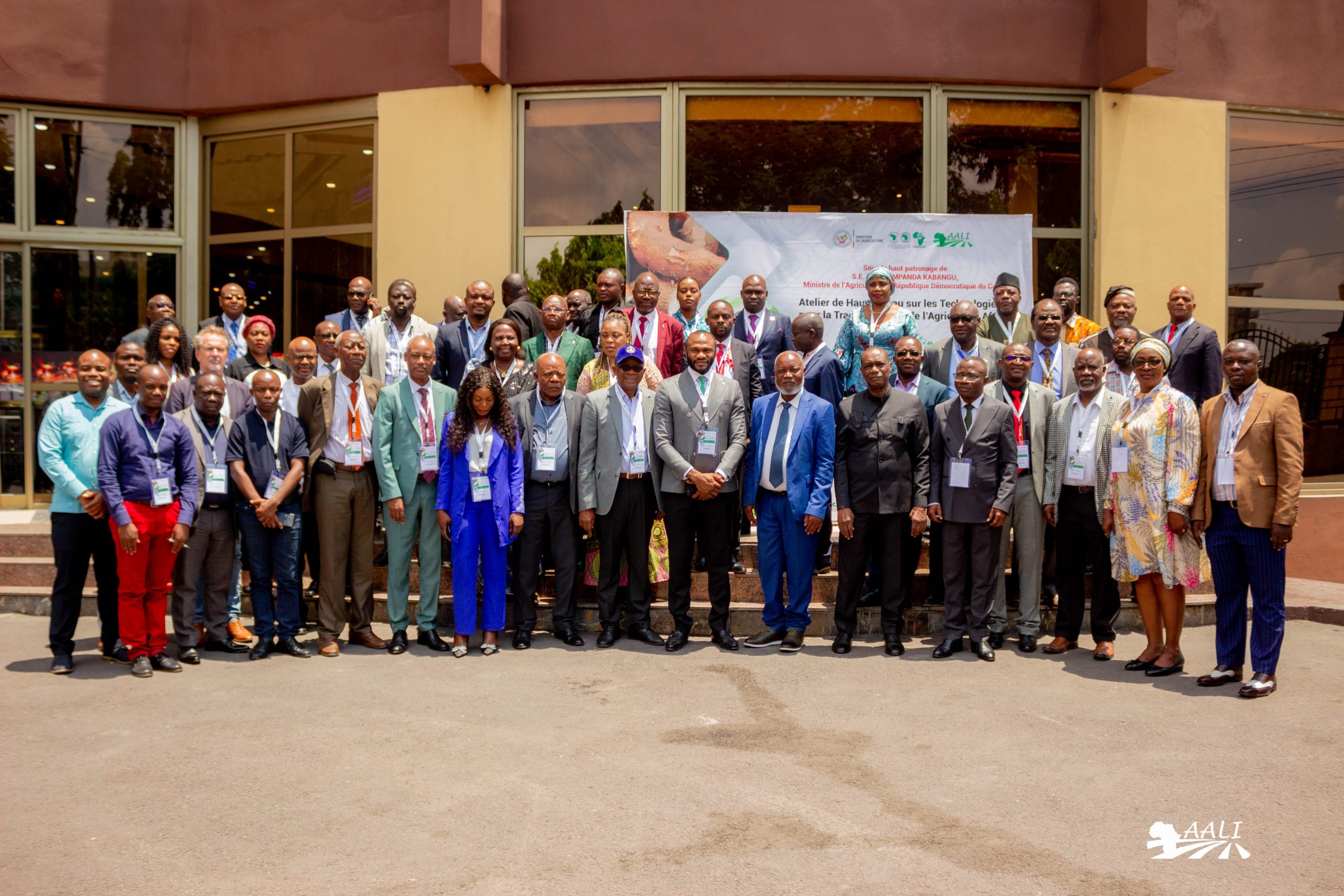The African Agricultural Leadership Institute (AALI) hosted a high-level workshop on high-performance agricultural technologies for the transformation of agriculture in the DRC from October 19 to 20, 2023, at the Beatrice hotel in Kinshasa, under the patronage of Congolese Minister of Agriculture, H.E. José MPANDA.
This workshop was organized, first and foremost, as part of the TAAT Clearinghouse program (Technologies for the Transformation of African Agriculture), which promotes new technologies aimed at modernizing the agricultural sector by mobilizing key political-administrative decision-makers at the highest level and soliciting their personal involvement in the scaling-up of high-performance technologies as an alternative solution to seed system problems. The latter receives little attention. Second, it adhered to AALI’s mission of promoting proven technologies that are likely to aid in the transformation of African countries’ agricultural agendas for good governance.
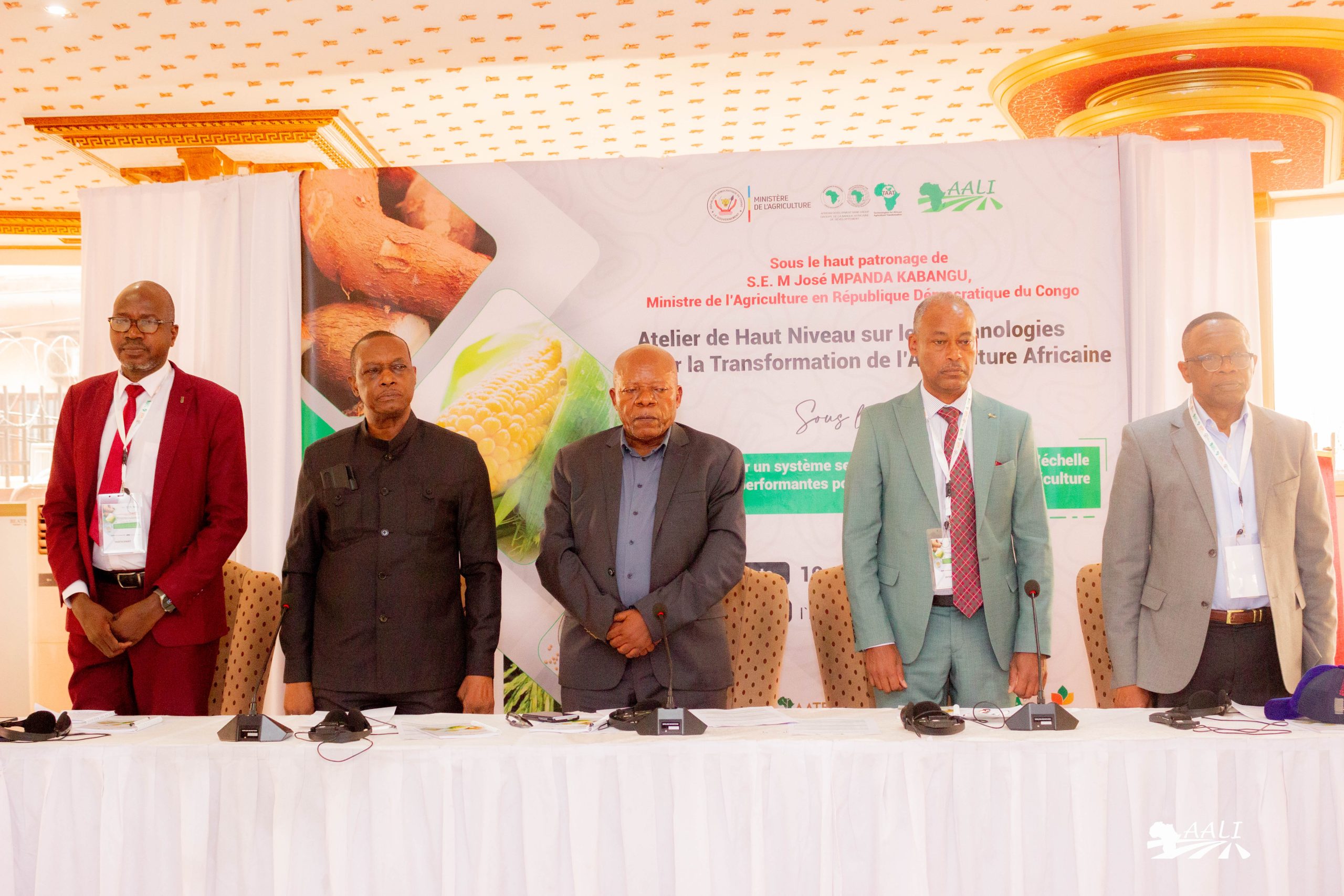
The goal was to forge and strengthen ties between the TAAT program and DRC agricultural transformation initiatives. The goals were to (i) identify interventions that the TAAT program could bring to current and future agricultural transformation initiatives that require high-performance technologies and best practices to increase the productivity of smallholder farmers in the DRC, and (ii) bring together all stakeholders in the Congolese agricultural sector to reflect on strategies for the development of an improved and efficient seed system.
True, the agricultural transformation process in the DRC was launched and implemented not only through the efforts of the private sector, but also, and most importantly, through the clear political will of the Congolese government, which funded the program. “Today, the DRC is considered one of Africa’s model countries in the challenge of agricultural transformation, thanks to the involvement of its President, H.E. Félix Antoine Tshisekedi,” declared Dr. Solomon GIZAW, TAAT-CH Program Coordinator. However, several constraints appear to be holding back the transformation process already underway. Fundamentally, these concern seed regulations, which remain the foundation for the development of a country’s agricultural sector.
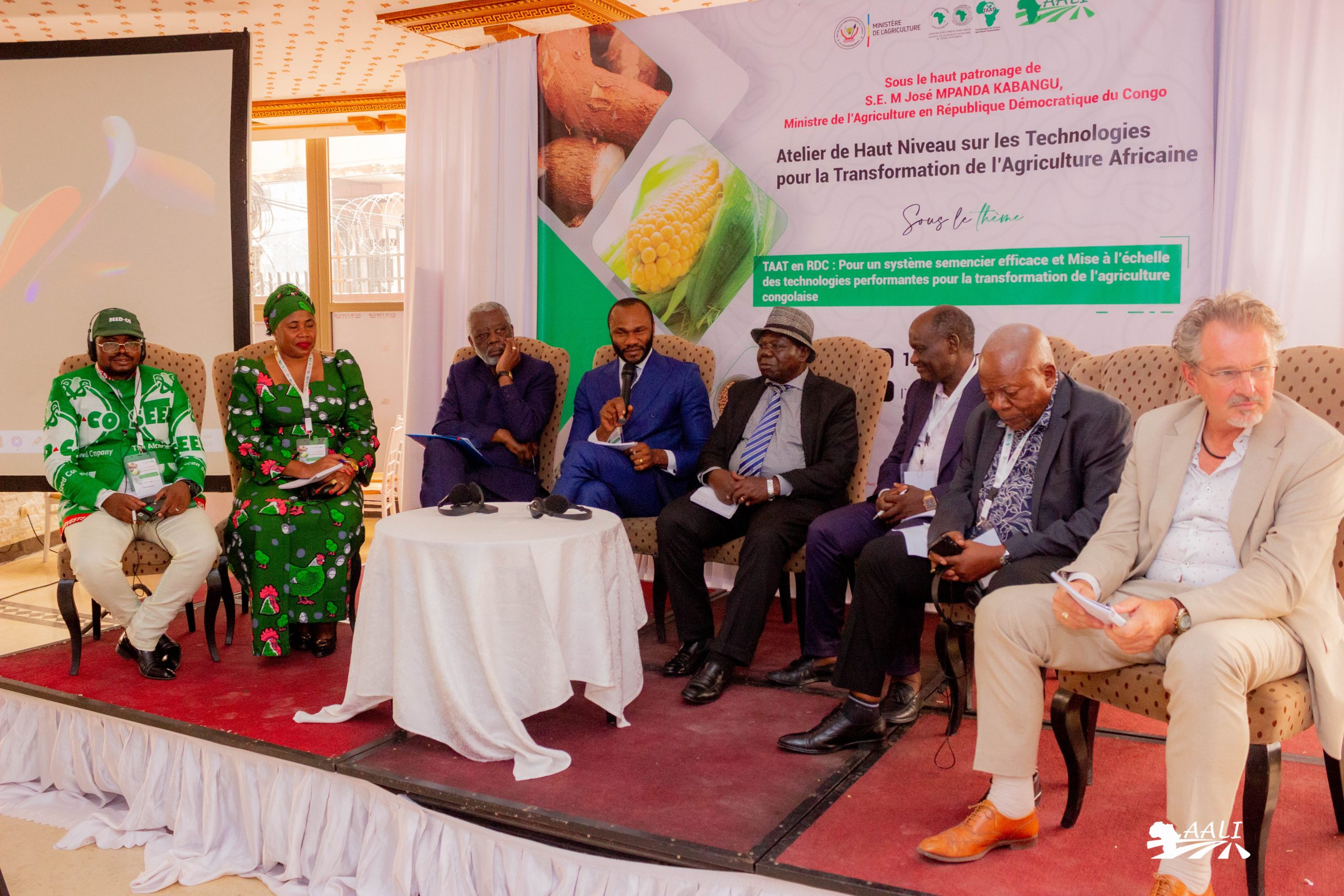
“Nowadays, we can’t claim to be increasing food production or to have good quality production if we don’t work hard to have quality seed. This workshop will establish the state of play in the DRC. Where are we with the seed system? Is it well established? What are the constraints? What are the prospects for improving this system? This is why the Minister supports the organization of this conference, which will certainly result in relevant recommendations for improving the Congolese seed system. The seed law has been integrated into the law revising the agricultural code. Although this has taken some time, we dare to hope that during this session, as soon as the agricultural law is passed, the seed law will follow at the same time,” mentioned the Secretary General for Agriculture, representing the Minister, Mr. José Ilanga.
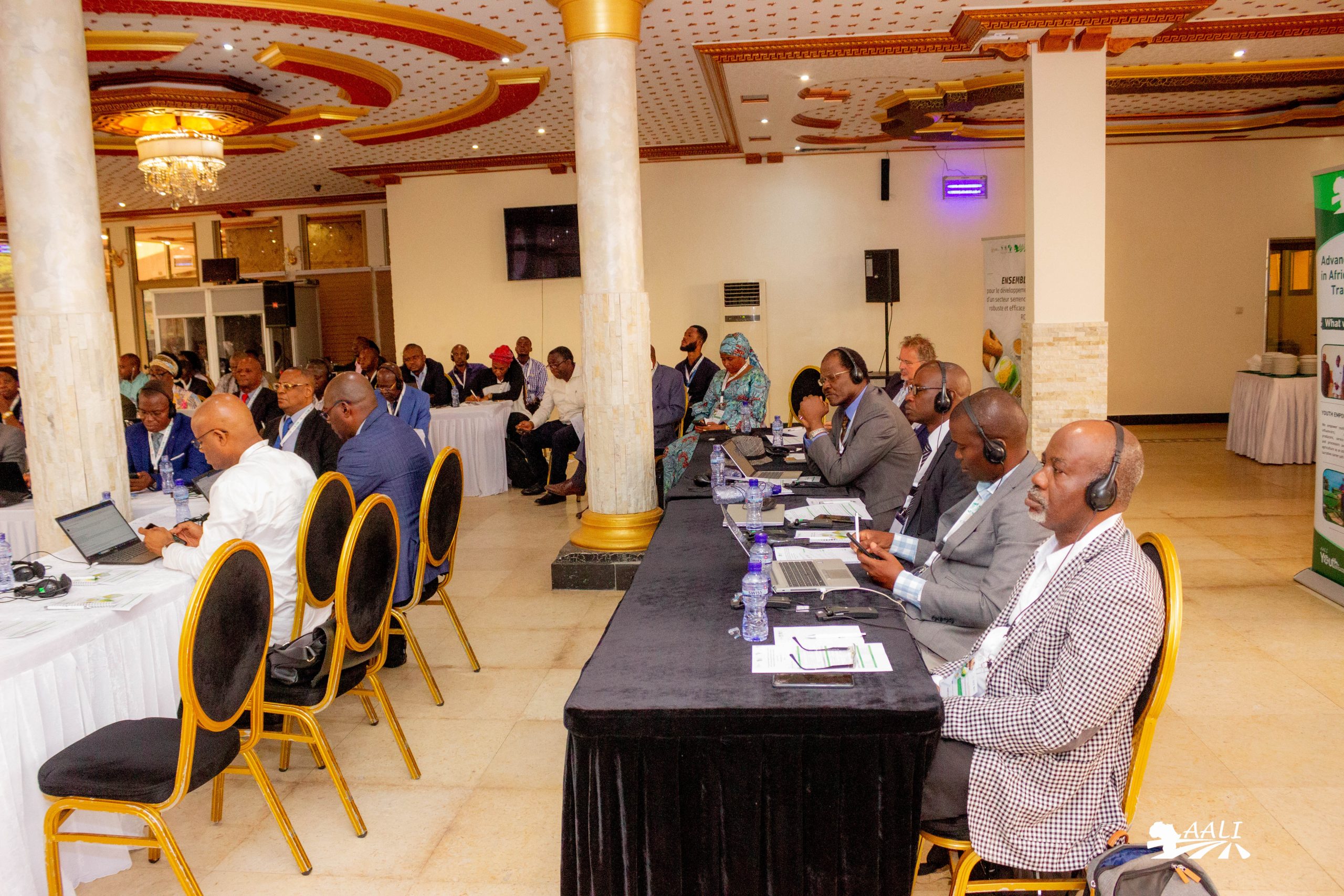
Indeed, a roadmap was drawn up at the end of the workshop, following the recommendations made, to help speed up the process of promulgating the Congolese seed law, introduced in parliament in 2026. This was achieved with the support and active participation of all the stakeholders represented, including the Chairman of the Agriculture Committee of the Senate and the National Assembly, the Coordinator of SENASEM and many other representatives of the private sector.
AALI’s Managing Director, Dr. Chris Okafor, remains convinced that if African countries improve their seed systems and adopt the technologies promoted by AALI and its partners, Africa will be able to offer a healthy, balanced diet to thousands of African children who remain malnourished.
